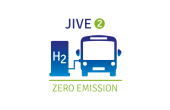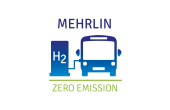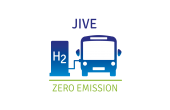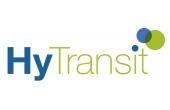Document purpose, scope, and target audience
A major bottleneck identified by previous projects (CHIC) in hydrogen refuelling station (HRS) deployment is the ‘permissions’ phase. While HRS remain relatively novel in many cities / regions, there is a risk of delays in obtaining the permits required to install the hydrogen infrastructure. Adding to complications, permission procedures vary between countries and in some cases between regions.
This document provides guidance for cities participating in the JIVE 2 project seeking to install hydrogen refuelling stations. The guide gives country-specific information on the key approvals that are needed prior to installation, and provides references to further sources of useful information. Please note that while the authors have aimed to give comprehensive lists of approvals required, there is no guarantee that the information contained herein is entirely comprehensive and local project managers are urged to use this document alongside other reference information and advice from suitably qualified / experienced individuals.
Whilst the target audience is cities with limited prior experience in HRS installation, the information is likely to be a useful reference for any organisation planning a fuel cell bus project.
The JIVE projects provide a unique opportunity to share experience between the leading innovators in hydrogen fuel cell buses and to capture new learning through the practical experience gained in delivering the local projects. This guide will be amended based on feedback from participating cities to ensure that local procedures of each region are taken into account.
Document structure
The document contains a table for each country in which fuel cell bus deployment projects are planned as part of the JIVE projects, containing:
• What approvals are needed
• Names of the relevant bodies to be consulted
• Further details for each approval step
Where possible, an indication of process timescales are given for each country.
Countries covered include:
• Denmark
• France
• Germany
• Iceland
• Italy
• Latvia
• Netherlands
• Norway
• Sweden
• UK
The references section consists of a list of European and country specific regulations, as well as links to relevant reports from previous projects by country.






